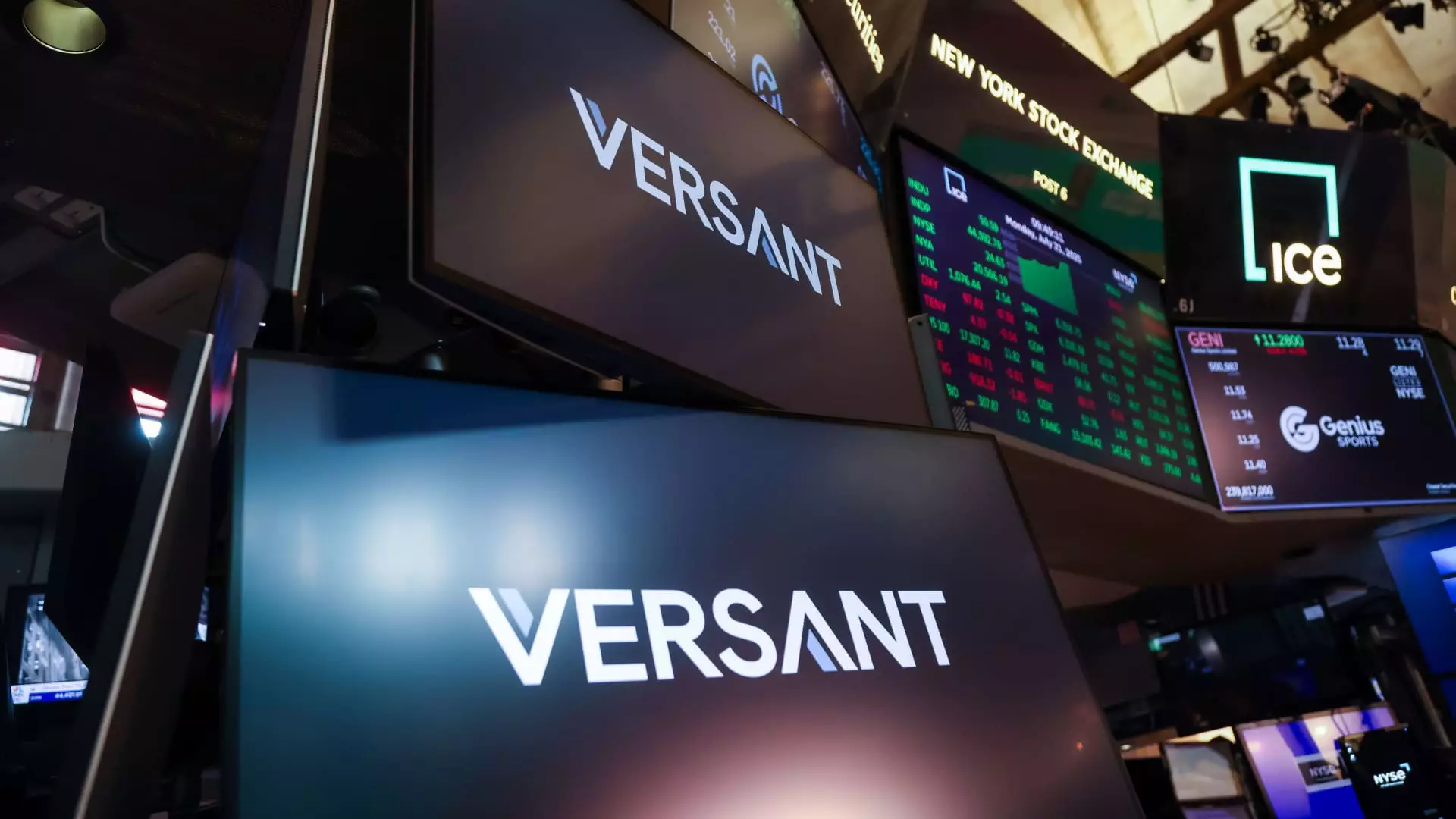Comcast’s recent announcement about spinning off its cable networks into a company named Versant marks a pivotal moment in the ongoing reshaping of the media landscape. What’s ostensibly framed as a strategic move towards independence quickly reveals itself as a calculated effort to recalibrate power within the industry. By transferring the ownership of flagship brands like NBCUniversal’s cable channels—including CNBC, MSNBC, USA Network, and others—Comcast is subtly shifting control from traditional corporate behemoths to a new organizational entity that promises to leverage industry expertise but could, paradoxically, concentrate even more influence over media consumers. The diversified board, packed with professionals from finance, law, and global corporations, underscores that this is more than an operational tweak; it is a strategic repositioning that risks embedding entrenched corporate interests into the very foundation of digital and traditional media.
Pure Marketing or a Shift Towards Corporate Consolidation?
At face value, the array of experienced leaders on Versant’s board suggests a commitment to innovation and strategic growth. Mark Lazarus’s leadership as CEO exemplifies a focus on establishing an “independent” yet highly interconnected media entity. Yet, the presence of figures like David Novak, former CEO of Yum Brands, and Rebecca Campbell, from Disney, indicates that the new company may serve as a political and economic pawn embedded within larger corporate alliances. These appointments, touted as bringing diverse expertise, can also be viewed as a shield—presenting Versant as a forward-looking, innovative platform, while consolidating influence under the guise of independence. This narrative diverts attention from the underlying reality: a centralization of media assets that could diminish the variety of perspectives available to audiences, further entrenching the dominance of corporate media conglomerates while giving an appearance of market diversification.
The Implications for Fair Competition and Political Discourse
One cannot ignore the broader implications of this shift for political discourse and market competition. The media landscape has long been a battlefield for influence, shaping public opinion and policy. Centralizing ownership of influential cable and digital platforms under a new entity controlled by a select group of high-profile executives and financiers risks removing critical diversity. This consolidationnot only threatens fair competition but also endangers the pluralism necessary for a healthy democratic process. While the spin-off might seem to promote innovation and focus, it actually risks creating new oligopolistic structures that prioritize corporate interests over consumer choice or diverse perspectives. In effect, Versant could become a gatekeeper—controlling the flow of information under the pretext of independence, while still operating within the shadows of larger corporate interests.
Behind the Curtain of Digital and Traditional Media Convergence
The choice to include companies like Fandango, Rotten Tomatoes, and GolfNow hints at a broader strategy to dominate the digital entertainment and lifestyle sectors. Combining traditional cable networks with digital platforms is understandably a savvy move, but it also signals a troubling trend: the erosion of boundaries between different media spheres. These platforms serve different audience segments, yet their consolidation under Versant’s banner suggests an intent to wield significant influence over how content is curated and presented. This raises concerns regarding how control over digital entertainment content could skew market competition and influence consumer preferences, subtly steering public discourse toward corporate and commercial interests rather than genuine consumer empowerment.
What the Comcast spinoff reveals more than anything is a calculated effort to redivide media power, cloaked in the language of innovation and independence. As the new board takes shape with notable industry veterans, it becomes clear that this move is less about benefitting consumers and more about reinforcing and expanding the influence of entrenched corporate elites. This orchestrated repositioning conveniently sidesteps significant scrutiny, offering a facade of fresh corporate structures while subtly consolidating control. For those concerned with fair competition, diversity of voices, and the integrity of political discourse, Versant’s emergence should be viewed as a warning—an indication that in the pursuit of corporate growth, essential democratic principles are often the first casualties. The real question remains: is this move opening doors to authentic innovation, or merely closing them behind a new corporate gate?

